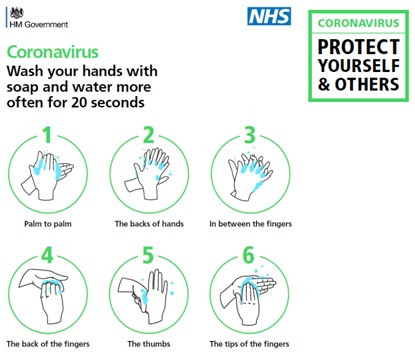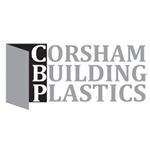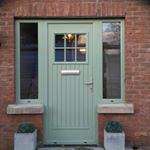Covid-19 Procedures
Covid–19 Safe Working Procedures
Apeer sells through approved dealers and each of our dealers will produce their own version of a Safe Working Procedure document. The details below refer only to the procedures implemented by Apeer’s management team to protect the Health and Safety of all staff and customers.
The purpose of a Safe Working Procedure is to reduce the risk to health and safety in the workplace and to reduce the likelihood of an injury by ensuring that employees know how to work safely when carrying out the tasks involved in their jobs.
1. Training
Employees must be formally trained to follow hand and hygiene protocols, wear the appropriate personal protective equipment, and self–isolate if they develop coronavirus symptoms. Managers will be trained to spot symptoms of coronavirus (most common symptoms of coronavirus (COVID–19) are a new, continuous cough or a high temperature). A record of this training will be kept.
2. Personal Protective Equipment
Face masks should be worn at all times except when eating/drinking. Face masks will act as a barrier to any airborne droplets from coughs and sneezes and help to prevent the potential spread of infection.
Safety glasses should be worn at all times while on the factory floor – as well as protecting from debris and dust, wearing of safety glasses will also act as a barrier to any airborne droplets from coughs and sneezes and help to prevent the potential spread of infection.
Gloves (cut–resistant gloves, coated work gloves, disposable nitrile gloves) are available to all employees to wear. Public Health England states: “The best way to protect yourself and others is: wash your hands with soap and water, or use a sanitiser gel, regularly throughout the day. [And] catch your cough or sneeze in a tissue, bin it, and wash your hands.” So, while gloves are not mandatory, they are available to all staff.
Hand Sanitiser will be issued to all employees for personal use – this is to supplement regular hand washing.
Anti–bacterial spray & paper roll will be issued to all employees for use at their work area. Hand tools, computer keyboards, mice, etc.should be cleaned regularly. Note that for keyboards and computer equipment anti–bacterial spray should not be applied directly, but rather sprayed on the paper roll and then the item cleaned with the damp paper roll.
Safety footwear should be worn at all times in the factory.
Hearing protection should be worn at all times in the designated areas of the factory.
3. Temperature checks & actions if symptoms are displayed
Digital non–contact thermometers will be used by managers to check the temperatures of all employees at the start of shift and after lunch to identify if anyone has a raised temperature (one of the main signs of coronavirus infection). The NHS states that a normal body temperature is approximately 37°C, and a fever is usually when body temperature is 38°C or higher (https://www.nhs.uk/conditions/flu/). Employees’ temperatures will be recorded and anyone with a temperature higher than 38°C (100.4°F) will be sent home and advised to self–isolate. Additionally anyone with a new, continuous cough will also be sent home and advised to self–isolate.
4. Regular cleaning of workstations by all employees
All employees will be issued with anti–bacterial spray and paper roll, and they must clean down their work area on a regular basis – typically this should be at the start of shift, after tea and lunch breaks and at the end of the shift.
5. Regular cleaning of shared spaces by cleaning team
A dedicated cleaning team will be put together. Their tasks will include cleaning of all shared areas multiple times per day, including sanitising of door handles and other high traffic areas.
6. Provision of hand washing facilities for regular hand washing
The toilet blocks in the factory have been fitted with new soap dispensers. It is each employee’s responsibility to ensure that you wash your hands regularly, especially before breaks, when you blow your nose, sneeze, cough or eat food. NHS advice is that you should wash your hands for around 20 seconds as per the diagrams below and dry your hands thoroughly.

7. Spacing of work areas in line with social distancing advice / working in teams
Management will endeavour to ensure workstations are separated by 2m in line with social distancing advice. Where employees are required to lift items in teams this should be for a short period of time and every team member should be wearing appropriate PPE as detailed above. Government advice states that “Coronaviruses can be spread when people with the virus have close, sustained contact with people who are not infected. This typically means spending more than 15 minutes within two metres of an infected person, such as talking to someone for instance.” (https://publichealthmatters.blog.gov.uk/2020/03/04/coronavirus-covid-19-what-is-social-distancing/). Employees should maintain social distancing (2m spacing) as much as possible when conversing with colleagues.
8. Passing workpieces from one colleague to another
If a workpiece is passed from one employee to another there is a potential risk of transmission of virus on the surface of the workpiece (e.g. a glass pane, glass unit or door frame or slab). This risk should be minimised since all employees will be wearing masks, however in order to further reduce any risks, employees receiving a workpiece that someone else has worked on should either wear gloves or ensure that they wash their hands regularly and avoid touching their face. Workpieces can also be wiped down with anti–bacterial spray before handling, ensuring product integrity is maintained (e.g. do not spray superspacer prior to a unit being hotmelted / polysulphided).
9. Rules for greeting colleagues
Many of our employees are used to greeting each other with a handshake. This practice must unfortunately be stopped at this time. Greetings should be verbal only, while maintaining social distancing rules.
10. Staggered breaks & spacing in canteen / smoking areas
Additional staggering of breaks will take place to minimise the number of employees in the canteen areas at one time. Seating will also be spaced appropriately to maintain social distancing guidelines. If employees wish to take their breaks in their cars, that will be permitted. Smoking should take place only in the vicinity of the smoking huts, however social distancing should be adhered to and all stubs should be placed in the receptacles provided.
11. Provision of temporary barriers
Where employees find that they are having to work in close proximity to colleagues for longer than a few minutes, management will investigate the provision of Perspex screens to provide a physical barrier and thus reduce the risk of infection.
12. Restricted access to factory for employees only
While the social distancing guidelines remain in place, we will restrict access to the factory to employees only, except by special arrangement. In these cases visitors will also have to comply with the new PPE rules together with social distancing guidelines.
13. Employees in vulnerable groups
Employees who have been advised by medical professionals to “shield” themselves for 12 weeks will not be expected to attend work.
14. Regular communication
Management will communicate regularly with the workforce to ensure everyone is kept up–to–date with any changes to actions being taken to reduce risks of exposure in the workplace, in line with government advice.







